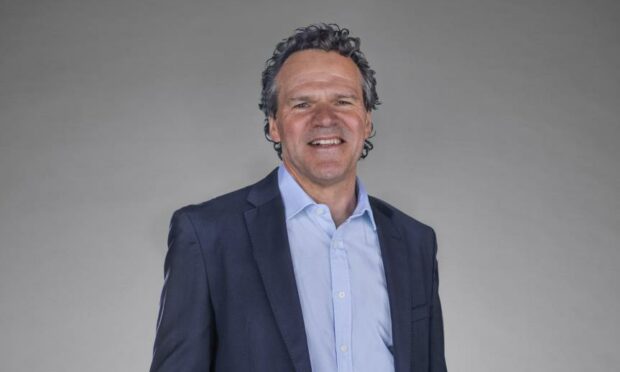The rising importance of environmental, social, and governance (ESG) principles of investment is the hot topic under the spotlight at the third annual Press & Journal Virtual Business Breakfast of 2021.
Joining our expert panel at the event, entitled ESG and the climate-positive city, is Bob Ruddiman, head of energy at Burness Paull, where he is responsible for leading and growing law firm’s combined renewables and oil & gas practices.
According to Mr Ruddiman, ESG is not going away any time soon.
“It is not optional,” he said.
“Whether you look at the court of public opinion or you look at the more objective stakeholder investor perspective, businesses – whether it is smaller companies coming to terms with it and learning to understand it or major corporates – need to embrace it and ask themselves, what are the opportunities this throws up.”
Embrace the opportunities
For Scotland in general and the north-east in particular, there are opportunities if only they are to be grasped. This is especially true of the energy industry which is being driven to change and decarbonise. While ESG and energy transition are not interchangeable concepts, you cannot discuss one without the other.
He said: “Right now in the north-east of Scotland we have a chance, if we are willing to embrace the changes, to be a global energy centre.
“The years of working in a marine environment, the interface between the ocean and the land. Pipes, terminals, wells, cables, offshore structures and general operations and logistics – these are all part of the future energy landscape. We either embrace that and work out the best practice from what we currently know, or the future looks rather challenging.”
Change is difficult
However, change is difficult and the global consensus required to meet the challenge is far from achieved.
He said: “We are, as a society, addicted to energy. There aren’t many people stepping forward saying they are willing to make significant sacrifices on a personal or a wider societal level to step away from that energy addiction.
It is called the just transition – but how you implement that is fraught with difficulty.”
“We have to work out where the compromises are. That is the challenge. It is encapsulated in what is called the just transition – but how you implement that is fraught with difficulty.”
Likewise, the cost of delivering net zero on a global basis is still uncountable, with collaboration between the public and private sector needing to reach new levels beyond even that the pandemic has achieved.
Mr Ruddiman said: “Whether you are in the UK or the global south, the financial capital for the changes we are going to have to make is eyewatering.
“We aren’t going to get there without significant public and private funding. Governments will require to work really hard at what their enablement methods are – both bringing in additional finance and to encourage corporates, cities, states, to give incentives.”
It will also require Scotland to dig deep into its roots of financial investment as well is its ability to innovate and set its sights on the global stage.
Taking the leap
“It is not going to be easy,” added Mr Ruddiman. “We are not going to make it without ruffling feathers and at times having some quite deep intakes of breath and leaps of confidence.
“That doesn’t mean doing anything reckless. But it does mean being willing to be able to push away from the quayside and see what it is like in the ocean.
“We have to make sure we have some oars and have some provisions – but we are going to have to go for it.”
The P&J Business Breakfast: ESG and the climate-positive city, sponsored by Burness Paull, takes place Thursday, July 1 and will be chaired by Press & Journal business editor, Erikka Askeland.
The breakfast event runs from 8-9am. To register for free, visit www.pandjbreakfast.co.uk
